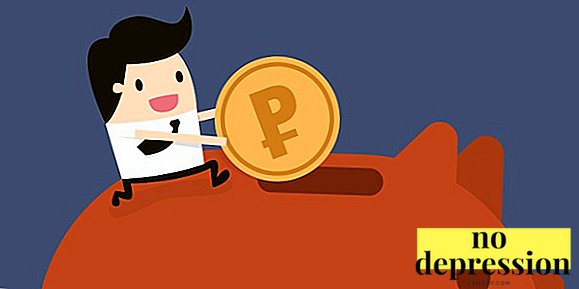In psychology, there is the concept of adaptation.
The ability to adapt to the environment largely determines the success of the process of socialization of the individual in society.
There are various aspects of this phenomenon.
Concept

What does the term “adaptation” and “adapt” mean?
In a broad sense, adaptation refers to adaptation to changing circumstances.
In this case, the phenomenon can be both biological and psychological in nature.
In a biological sense we are talking about the ability of the organism to exist in the proposed environment. In terms of psychology adaptation is the process of adaptation of an individual to the conditions of the society in which he exists.
This process involves the assimilation of existing norms, values and rules. And not only at the level of the whole society as a whole, but also at the level of small groups: family, team, friendly company.
With successful adaptation a person leads an active life, carries out various activities and interacts effectively with others.
In the presence of certain difficulties problems can be observed in the process of socialization, psychological problems.
Adaptation in psychology is considered as a skill that is formed under the influence of natural abilities and external factors: education, education, vocational training.
Adaptability - what is it?

Personality Adaptability - What Does It Mean?
Adaptability - this is the property of the person, expressed in the ability to change, to adapt to the proposed circumstances.
That is, if adaptation is a process, then adaptability is the quality of a particular individual.
It is inherent in any of us, but maybe expressed in varying degrees.
The faster a person is rebuilt and begins to effectively carry out activities in the proposed circumstances, the higher his level of adaptability.
In the course of your life each individual is faced with a series of changes: first trip to kindergarten or school, change of residence, applying for a new job, moving to another country, etc.
The faster a person learns the rules of behavior in the habitat in which he has got, the higher his chances of successful socialization.
He gets the opportunity meet your needs and enjoy life even in new circumstances that had not been used to him recently.
The unwillingness or inability to change one’s worldview in a report on changes in life indicates a low level of development, laziness or lack of will.

Adaptability is a conscious quality that you can develop in yourself.
Accordingly, the presence of problems in this area indicates the absence of intellectual flexibility.
Adaptability manifests itself in four areas:
- social (moral, political, legal relations, etc.);
- socio-psychological (system of relations and relationships);
- professional or cognitive (acquisition of knowledge and skills);
- ecological (interaction with the environment).
Psychological, physiological adaptation
Psychological adaptation is an extensive phenomenon that concerns internal mental processes, social activity, cognitive and professional activity of an individual.
This process is bilateral. On the one hand, changes in the external environment have an impact on the human mind, and on the other hand, each person with its psychological features contributes to the structure of society.
There are three types:
- Internal. Under the influence of external circumstances, a restructuring of the internal system of values and the structure of the personality takes place. This is a global and complete adaptation, in which new individual traits are formed, there is a rejection of the old habits and beliefs that have lost their relevance.
- External. This is a device in which there is a change in external behavioral reactions. The internal structure of the personality remains unchanged, the values and attitudes are preserved.
- Mixed. A mixture of the two previous species. An individual partially changes his internal settings and partially adjusts to the environment by changing behavior.

Psychophysiological Adaptation - This is a manifestation of the physiological reactions of the body, directly related to the processes occurring in the psyche during adaptation to new conditions.
For example, if there are problems with getting used to a new situation, sleep disturbances, anxiety, irritability, obsessive states, etc. may be observed.
Examples
Adaptation process accompanies a person his whole life since birth. Thus, a child born is a biological organism, completely devoid of the experience of being in the world and interacting with other people.

As they grow up, the newborn learns the first social methods of communication: smile, laughter, attention demand, location manifestation, etc.
In the future, receiving information from parents and other people the child adapts to its surroundings and learns to match their needs with the requirements of the environment.
An important step in childhood is enrollment in kindergarten. Here skills of communication, cooperation, obedience, etc. are acquired.
In the future, the child goes to school, where he is faced with the need cognitive activitybuilding relationships with classmates and a teacher.
If in kindergarten all the requirements were basically reduced to obedience and the observance of the general routine, then the school has responsibilities that are subject to evaluation by other members of society.
In adulthood, transitional events are such events as beginning of professional activity, change of collective, military service, transfer to another position, the beginning of family life, the appearance of children, etc.
Each new stage of life requires the ability to show adaptive behavior, adapting to changing conditions.
Briefly about the aspects
Modern science identifies the following aspects of the process:
- Social. Introduction to the social environment and the implementation of activities aimed at the realization of their own interests and the satisfaction of social needs. Adaptation in society is key to the development of all necessary social skills of the individual. Insulation leads to a loss of opportunities for self-realization, obtaining satisfaction from communication with other members of society, and achieving social well-being.
- Psychological. Perception of the changes taking place on a psychological level and providing the necessary psychological comfort.
- Informative. Obtaining knowledge of different levels in childhood and in adult life.
- Professional. The development of professional knowledge necessary for the formation in the chosen field of work and the establishment of relationships with colleagues.
- Cultural. The assimilation of moral norms and values of the environment and social group in which the individual exists.

Personal potential
Personal adaptation potential is the ability of a particular person to show psychological stability in changing conditions.
The higher the potentialThe easier it is for him to demonstrate normal performance, high efficiency of activity and psychological stability under the influence of external factors.

That is, for one person, these figures may decrease with minor external influences, while for another, they may remain at a normal level even under severe pressure of circumstances.
Adaptive potential of the personality consists of the following characteristics:
- neuropsychic stability;
- susceptibility of stress;
- self-esteem;
- self control;
- availability of support;
- level of conflict;
- social experience.
Adaptation Capabilities
Usually there are three types of such features:
- Biological. This is the ability of the human body to get used to the conditions that the habitat offers.
Usually, the first people who fall into an unfamiliar environment do not immediately get used to it. But gradually the development of necessary skills occurs, the body adapts to the proposed circumstances.
Subsequent generations are already being born with innate qualities that are inherited by him. Accordingly, these generations do not need to go through the complicated process of habituation.
- Social. The ability of an individual to quickly adapt to social norms and requirements is called social adaptation capabilities. This ability manifests itself both at the level of society as a whole and at the level of a small group. All people know that it is customary to wear clothes in public places, that familiarity is unacceptable with strangers, that the representatives of the older generation should be addressed to "you", etc. Such knowledge allows you to successfully communicate with other members of society. Ignoring the elementary rules of behavior leads to misunderstanding and, in extreme cases, to social exclusion. On the scale of a small group, adaptive abilities are manifested in the ability to adapt to the manner of communication of close relatives, to observe the unspoken rules of behavior in a team, etc.
- Ethnic. Every nation has a set of social values, rules and traditions that are peculiar to it. This is a whole complex of special physiological, cultural, social features that distinguish the inhabitants of a particular territory. Often people change their place of residence, moving to other countries. This is one of the most difficult habituation options, when a person essentially gets into another society. He is faced with a new language, with unaccustomed traditions, with special values and attitudes. The ability to integrate into a new environment directly depends on the ability to adopt the characteristics of a foreign society.

Each individual data abilities are developed differently. Moreover, in one person a high level of adaptive capabilities of one type and the complete absence of such abilities in another direction can be combined.
For example, a person easily joins a new company and absolutely comfortably feels himself in a new team (social opportunities) and at the same time does not tolerate unusual climatic conditions (biological capabilities).
Rehabilitation

In psychology, readaptation is understood as a set of measures aimed at formation of adaptation to the environment.
Activities include psychosocial influences, work organization, vocational training, retraining, pedagogical work, psychotherapeutic support.
Specialists rehabilitation, helps an individual to develop the necessary abilities and feel comfortable in the proposed circumstances.
Thus, adaptation is a complex process that allows a person to adapt to changing environmental conditions.
The success of the process depends on the individual characteristics of the individual and the efforts made.
Adaptive capabilities of a person:



